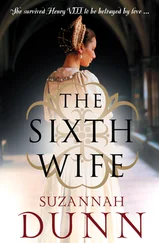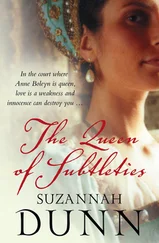Back then: Watch and learn, they urged me of my forthcoming time at the duchess’s; soak everything up and do your utmost best at all times. I’d be working hard to help run a big household, as well as learning Latin and Greek, mathematics, music and astronomy, but the reward, ultimately, would be my own wealthy, well-connected household in which - God willing - I’d be raising my husband’s heir and our many other eminently marriageable children. It all sounded good to me, or certainly good enough. At eleven years old, I knew of nothing else to wish for.
Make people want you, Catheryn, my mother said. Make yourself the girl who people want for their family, she said. Because, yes, it’s all down to money, in the end, to dowry and social standing and there’s nothing, she’d tell me, that you can do about any of that: that’s for us to worry about, and we’re doing the very best for you that we can. But there is something else: character. There are so many girls, Catheryn - more and more, these days - and so little to choose between those of you with your kind of dowry and background, but you can tip the balance in your favour. You can make yourself the girl who people want as their daughter-in-law, their son’s wife, the mother of their grand-children. You can be the girl who lights up the room, catches eyes, warms hearts. Make yourself the girl that people want to be running their son’s household. You’ll need to show an eye for beauty and quality, she said, but a nose for value. A head for figures and a good hand for letter-writing. You’ll need to give the impression you can deal with servants - keeping them in line whilst winning them over — and keep a good name with merchants and suppliers. Don’t stand for nonsense but curb your tongue and keep your temper, and never take sides. Have a ready smile, be quick to lend an ear, a helping hand, and have an eye for who’s to be trusted. Keep your counsel, but don’t be secretive.
Be respectful to your elders and betters, she insisted. Never waiver in that, never be tempted for a single moment to think that you’re quicker-witted or clearer-eyed than your elders and betters, because once you start that, you’ll never be able to stop, and no one’s interested in clever girls. Wittiness never got a baby to sleep, or a draper paid.
Make sure you’re always looking neat and tidy and clean, she’d say, but other than that, don’t worry about your appearance. You’re not bad-looking, as it happens, she’d tell me, but looks fade before you know it, and then what are you left with? Beauty draws the eye but for all the wrong reasons. Keep your eyes down, Catheryn. Don’t look at boys. Don’t even look. Don’t get distracted. Don’t let any silly girls fill your head with talk of romance. Girls can be very silly, Catheryn, when they haven’t had what you’ve been lucky enough to have: a proper upbringing. It’s a silly girl who gets her head turned. Get your head turned, she said, and you’re lost.
You’re no one’s fool, she’d say to me, and there was something in how she said it that suggested it was a secret between us and, for reasons I couldn’t fathom, not an entirely comfortable one. A burden, almost, perhaps.
There was such a lot to remember about how I should be; I worried I’d never remember it all, let alone one day actually manage to be it. None of this would ever have been said to Katherine: she had no mother to say it and, because she’d been born into England’s principal family, there was no need anyway for it to be said. And so she came unencumbered to the duchess’s; whereas for me, my mother had spoken so compellingly that, in my mind’s eye, I could see the woman I was to strive to become, the calm and capable, well-loved and much-valued lady, warm-hearted and cool-headed. She was a wonderful prospect, that lady, but always at a distance from me; such a distance that she seemed to have nothing to do with me, striding away into the future, and when I arrived at the duchess’s I didn’t know if I’d ever keep up or even ever dare take a step in her direction.
All that talk at home of the Howards’ wealth, but when, on my journey from home to the duchess’s, the leading rider called back that we’d arrived, I assumed we were stopping off somewhere for an overnight stay of which I hadn’t been informed. We were approaching a timber gatehouse, behind which was a moat and what appeared to be a jumble of barns. Hours earlier, we’d ridden away from the family home that my father had had built: a symmetrical, brick-built house gazing big-windowed over formal gardens. Clattering over that old drawbridge, I craned enquiringly towards my old nursemaid, Mrs Kent, but received only a smile in return. The drawbridge took us to a porters’ lodge, beyond which was a courtyard like a farmyard: a flock of ewes being shepherded across it, and a dozen or so labourers yelling and hammering, hauling and slamming down plough-shafts, scythes, cartwheels and crates.
A couple of labourers took our horses, and a liveried man arrived to greet us, requesting that we accompany him. Duly, we tottered across cobblestones, avoiding the smears and dollops of dung. The man’s grey jerkin had a subtle shimmer to it. My own servants were dressed in a flat, glaring blue. Someone wealthy, then, was staying here: a party from the duchess’s, perhaps, to meet us and then take us on with them in the morning to her splendid, elegant house. I asked Mrs Kent, ‘Where is this?’
‘It’s where the duchess lives.’ She sounded surprised that I’d asked.
I was weary from the ride, lacking patience. Servants will believe anything, I’d been told often enough. ‘No, it isn’t,’ and I laughed to muffle my irritation.
She laughed, too. ‘Yes, it is.’
Poor old Mrs Kent, I felt, who knew so little of the world.
We and our handful of attending men followed the well-dressed servant down a passageway into a courtyard which, to my relief, was serene. This, then, was where people lived, although I noticed that the windows, which were unshuttered, had linen in the frames instead of glass. Still, the place would do for an overnight stop, and, anyway, I was won over by the rich aroma of roasting meat. The servant ushered us through vast double-doors into a hall: a Great Hall, no less, the hammerbeam roof holding its decorative detail - coats of arms and sparring beasts - high above us, and the walls fortified by tapestries, their silken characters wan and fey among vines and waterfalls. The room could’ve come from stories that Mrs Kent used to tell me: stories of knights and damsels. No doubt this place had once been home to a noble family. Our own Hall was merely a room in which our staff put up a couple of tables at mealtimes for themselves and anyone visiting on household business, while my mother and I dined in the privacy of an adjacent parlour. This old Great Hall, although as yet deserted apart from a skulking wolfhound, was about to seat perhaps as many as a hundred people at several long tables: we’d stumbled upon a feast. At the far end, up on a platform, a linen-bright table bristled with silverware. ‘The duchess’s table,’ Mrs Kent whispered, delighted. She’d know, I realised: she was old enough to have grown up in just such a house. Was this the duchess’s house, then? It was impressive in here, but barely over the threshold was that farmyard with its mud and flies and indignant livestock. I would have to get word to my parents: they should know that the duchess had been misrepresented. We’d been tricked, hoodwinked. My mother’s plans for me didn’t include my growing up in a house no better than those of which she’d spoken as haunting her own childhood, the olden times before the coming of our bright new king and his subjects so keen to make better lives for themselves.
Читать дальше












